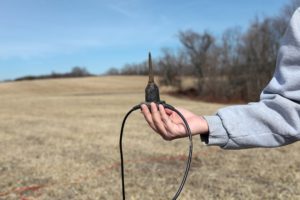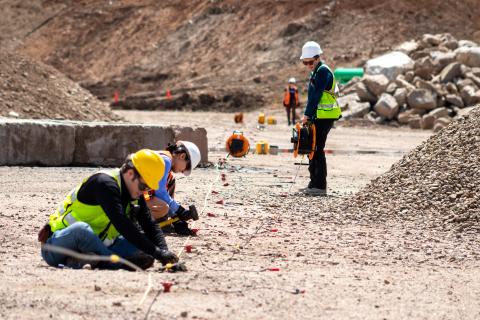All Categories
Featured
Table of Contents
What Does A Geophysical Data Technician Do? in Mount Claremont WA 2023
This work is significantly contracted out, so consultancies offer another source of work. Consultancy companies vary in size, from very small business to big multinationals. Some consultancies are rather specialised in utilizing specific geophysical strategies or working in particular locations, while others offer a more diverse series of services to their clients.
The extraction of gas from garbage dump sites is another location of employment and this may grow in the future. Exploration business may carry out work for building firms, public utility, mining business and environmental agencies, so geophysicists might be utilized in any of these settings. Other employers include: geological surveysgovernment bodies and agenciesuniversities and research study institutes.


Jobs might be noted in the oil and gas sector press. Recruitment is affected by oil rate changes and the level of competition for positions differs depending on this. Professions Days, which cover the full series of geoscience professions and are normally gone to by a number of key industry companies, are run by The Geological Society.
Geophysical Prospecting in Alfred Cove WA 2023
Some of the large oil and gas business provide a complete two-year structured training programme across the breadth of geophysics, consisting of the chance to experience work in different teams prior to specialising in one location. Your training might consist of work on: existing wellsmagnetic and gravitational potential field data analysisresearchrock analysis. However, it's more typical for your preliminary training to be offered on the task.

There may be a probationary period throughout which you work along with a skilled associate. Competency-based appraisals take location routinely in a lot of firms. In smaller firms, and for scholastic posts, there is not likely to be any official training - you'll be anticipated to begin work straightaway and choose up skills as you go along.
If you work for a smaller company, you may find that you need to take responsibility for setting up and moneying your own development and training. If you have a geology degree, membership of The Geological Society can be helpful for networking and for keeping up to date with the industry.
Consumer Guide To Geological And Geophysical Services ... in Ascot WA 2022
You might also find it helpful to join the PESGB (The Petroleum Expedition Society of Great Britain, which has a geophysics special interest group. After a probationary duration, and as soon as you've acquired some experience, you could progress to senior geophysicist, then group leader and after that into a senior role in management.
The ease of motion between functions depends upon the company structure. Research study at Masters or Ph, D level in a subject associated to geophysics or geosciences may assist with your profession advancement and progression. The employment market within the oil and gas industry is extremely reliant on rate and this may affect your chances for profession development.
For experienced geophysicists, freelance consultancy uses an excellent route for profession advancement. As a geophysicist, you're likely to have several tasks throughout your working life.
Geophysics in Viveash WA 2021
From geophysics, it's possible to concentrate on seismology (finishing additional training to end up being a seismic interpreter) or to move into associated areas such as engineering geology or risk prediction.
Deciding what to study in college is a difficult option. Even if you understand that your field of interest depends on science, what program of study is best for you? If you make the decision to major in physical and biological sciences and pursue a career as a geophysicist, you're getting ready for an exciting and rewarding profession.
However the initial step to accomplishing your goal of ending up being a geophysicist is earning a degree. Even for entry-level positions in the field of geoscience, you'll require a bachelor's degree (a geophysicist college degree) from a recognized college or university. Some research study positions need candidates to hold master's degrees or perhaps Ph.
Geophysical Survey - An Overview in Roleystone WA 2022
Postgraduate degree are specifically important if you plan to teach at a four-year organization. Geophysicists apply physics principles and strategies to study the gravitational, magnetic, and electrical fields of the earth. This advances researchers' understanding of both the world's interior core and its surface. Geophysicists should have the ability to: examine rocks, pictures, and other pieces of data perform research study both in the field and in laboratories develop maps and charts of their findings compose reports To accomplish all this, students need a specialized education for geophysicist careers.
As mentioned above, you'll need a bachelor's degree in geoscience or a related discipline, such as a physical science or a life sciences, to land an entry-level job. But students can also prepare by learning subjects like: Biology Chemistry Computer science Engineering Mathematics Physics The above geophysicist majors offer a more generalized technique to a single scientific discipline, but many programs need students to take one or more geology course.
Latest Posts
Geophysical Surveys - U.s. Geological Survey in Wandi Western Australia 2023
Geophysics in Mount Claremont Aus 2020
Geophysical Survey in Casaurina Aus 2020